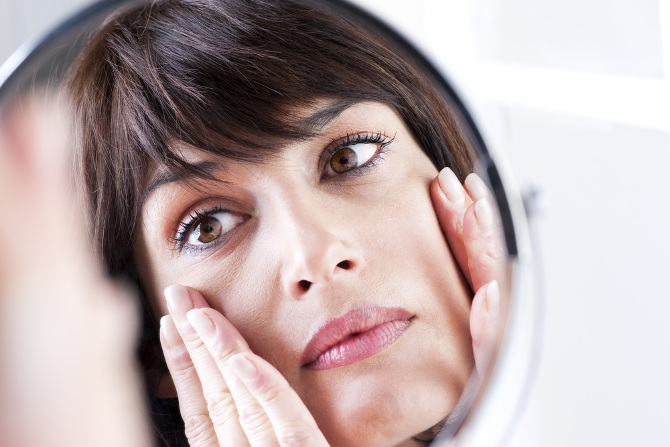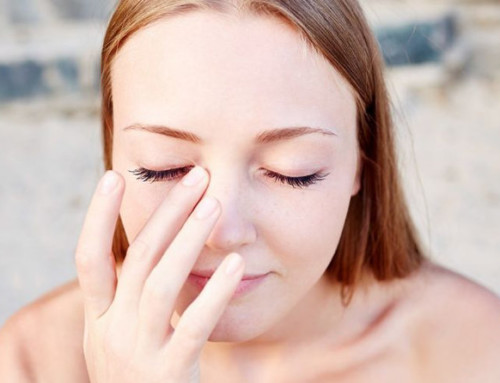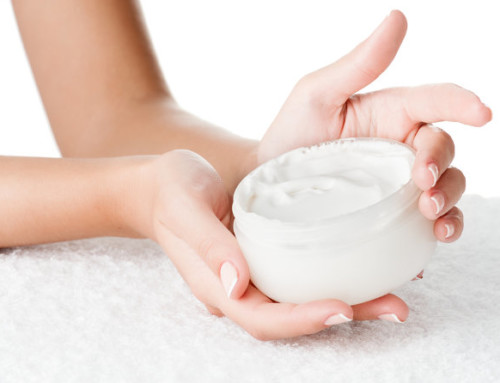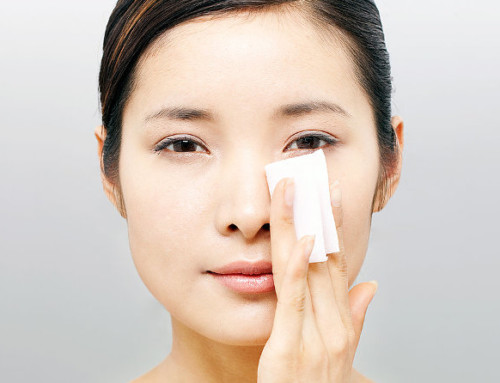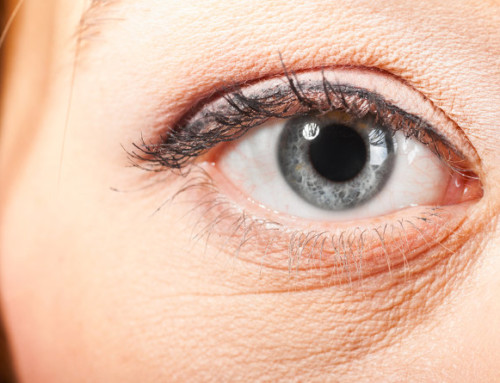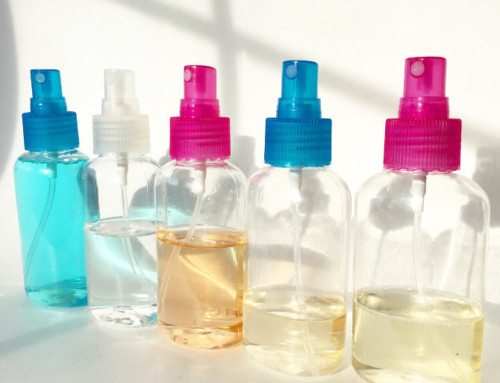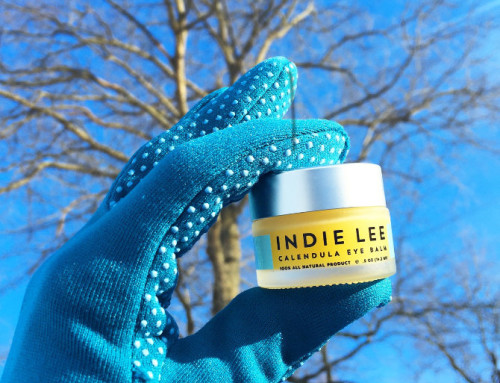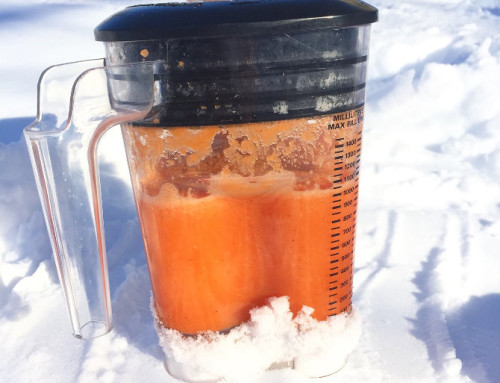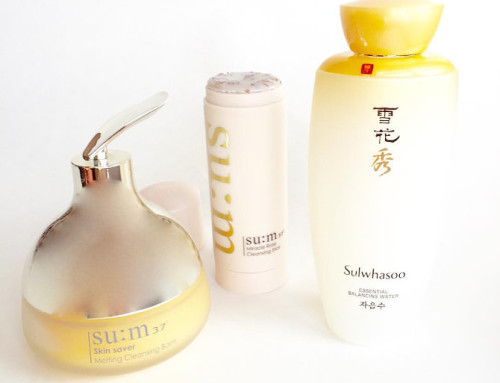Ever wake up, look in the mirror, and think your skin looks blah? I had a few of those days recently. My complexion looked dull, pale, and deflated. It had no vitality or glow.
I wasn’t sick with a cold. So what happened? As I was going through the process of figuring out the reason, it dawned on me to share this thought process with you.
In today’s post, I’ll also go over simple things you can do to improve your skin right away and start the healing process.
5 Questions To Ask When Your Skin Is Off
The first thing I do is ask myself these questions:
1.) What skin care products did I use last night before bed?
Did I use a new product or change my routine?
If the products were not new and didn’t give me problems before, I ask myself if I combined them differently:
- Did I change the order of the steps?
- Did I use two serums together that I hadn’t tried before?
If there was nothing new or different about my routine, I dismiss products as a trigger.
2.) What did I eat yesterday? And the day before?
This is the usually the Aha moment. Most of the time, when my skin doesn’t look tip-top, it’s because of what I have been eating, or rather what I have NOT been eating.
In the recent case, I had not been eating fruits and vegetables. Over a few days, I was very busy and hardly eating at all. Just getting by mostly on carb and (bad) fat calories, animal protein, and caffeine (coffee).
For the most part, my diet is very healthy, and I eat fruits and vegetables throughout the day. But I can get very lazy about food when pre-occupied, and end up eating whatever’s in front of me. Because my diet is so “clean,” when my food consumption deviates from the norm, it shows up immediately in my skin.
3.) Did I drink enough water yesterday? And the day before?
Getting enough water is always a challenge for me (because I don’t like drinking). So it’s easy for me to get dehydrated. And when my body is dehydrated, the skin suffers.
In this case, I hadn’t been drinking enough water either. It was evident in the texture of my skin – it felt drier than normal and looked crepe-y on the outer edges of my face (where there is naturally less oil).
My face also looked much less full (no plumpness at all), as there was less water in both the dermis and epidermis. A double whammy for someone like myself with little cheek volume to start (makes you look older!). If you’re aging and starting to lose volume in your face, you’ll care about this more.

4.) How much sleep did I get the past few nights?
Sleep deprivation is a sure-fire way to ensure your skin doesn’t look good. Besides dark circles, a lack of sleep can give your face a hollowed look (temporarily). That’s me when I get less than my minimum. Beauty sleep is very important for skin, as this is a time when certain types of repair and production peak.
In this case, I had been getting enough sleep. So the culprit so far was diet and water.
5.) Where am I?
Am I out of town? How polluted is the area where I am? Where was I yesterday? This is another Aha moment.
For example, I sometimes travel to New York City. Without fail, my skin takes a noticeable beating every time I’m there. It looks and feels worse – tone, clarity, texture, and pore cleanliness. Everything is affected. My eyes also get a bit bloodshot, and I get this slight hacking cough. The cough disappears the day after I leave and return home (where the air is clean and there are plenty of trees to absorb pollution).
I lived for more than 10 years in NYC and never realized how much the air pollution affected my skin until I left and moved to other cities. Pollution is enemy #3 for skin. (Enemy #1 is excessive UV radiation, and #2 is tobacco smoke, in my book).
The same thing happens to my skin when I visit other large, polluted cities. If you live in a polluted area, and you seldom leave it, it may not occur to you what effect the pollution has on your skin.
If you’re not traveling, consider where you were the day before. Were you sunbathing at the beach? In a cold or windy area? In a smoky area? All of those environmental elements take a toll on skin too.
How To Immediately Improve Your Skin
Once you identify potential triggers for a change in skin, you can stop the trigger. Skin will eventually return to its normal state.
But what can you do once your skin is already looking off?
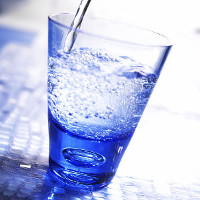 1.) Drink water.
1.) Drink water.
Immediate relief for skin. Water is so essential for every metabolic reaction in the body. Essential organs get water first. So insufficient water for the body will deprive the skin tissue of water.
You need to drink more if you have been caffeinating or drinking alcohol. For every caffeinated or alcoholic beverage, drink an extra glass of water.
2.) Eat some fresh fruits and vegetables (especially greens). Cut back on the bad foods. You know what they are.
 Fruits and vegetables provide nutrients that are needed by cells for normal function. They also provide your skin with antioxidants that reduce free radical damage. If you’re in a polluted area, antioxidant-rich foods and topical antioxidants are even more crucial.
Fruits and vegetables provide nutrients that are needed by cells for normal function. They also provide your skin with antioxidants that reduce free radical damage. If you’re in a polluted area, antioxidant-rich foods and topical antioxidants are even more crucial.
I am not a big believer in junk food deprivation. Simply because I believe 100% deprivation of tempting foods never works and is not a way to live life.
If you enjoy the fatty, fried, sugary foods, I personally believe it’s fine to eat them. Just in moderation and as long as you’re getting everything else you need nutritionally for optimum health. But the latter isn’t easy to do if you’re weighing healthy calories vs non-healthy calories in a calorie-restricted diet. So, prioritize and if you need an extra incentive to eat well, imagine a picture of youthful, radiant skin.
Certain ‘bad foods’ should be kept to a minimum. For example – sugary foods and meats cooked at high heat or charred, as they cause glycation of collagen and elastin. Basically, the process of glycation deforms these proteins and makes skin more wrinkled, saggy, and mottled.
 3.) Take a nap. Even a 15-30 minute cat nap is helpful.
3.) Take a nap. Even a 15-30 minute cat nap is helpful.
Getting more sleep at night will help enormously. But I know that may not be feasible. The next best thing is a cat nap. Say you can’t fit in a nap, or you can’t fall asleep for a nap. Then close your eyes and lie/sit still for 10-15 minutes (or more). It’s still rest for the body. And rest is what you need.
4.) Take an omega-3 supplement.
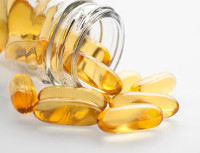 The omega-3 will feed the skin barrier with essential fatty acids, which in turn will help your skin hold onto water longer. The skin should feel more moist and soft, and look plumper as a result.
The omega-3 will feed the skin barrier with essential fatty acids, which in turn will help your skin hold onto water longer. The skin should feel more moist and soft, and look plumper as a result.
Treating More Problematic Skin
If you’re struggling with a larger problem, such as serious breakouts or severe irritation, then I would suggest you focus on one and only one task first – getting your skin barrier back on track.
The first step toward healing skin is making sure the barrier function is working properly. A strong barrier is the foundation for good skin. You can’t have good skin without a strong barrier. If your barrier has become weakened or damaged, your skin will remain in a state of unhappy limbo until it gets fixed.
First, do not go run out and buy products that treat this and that. Do not ask a friend, “What are you using for ____?” Most likely, your friend’s skin is in a different state from yours. It’s a waste of time and money to follow recommendations from a friend or salesperson, if your skin isn’t healthy. If it is healthy and you don’t have problems, then you can pretty much use anything with low risk.
If you want recommendations, you should get them from a trained skin professional who has taken the time to examine your skin closely and collect your skin history.
Next, take a look at the meaning of these 3 steps. Are you doing all of them? Examine what product(s) you are using for each of these steps.
1). Cleansing
What are you using to cleanse your skin? This is the most common culprit. Using the wrong cleansing agents or over-cleansing easily damages skin. If you’re not already using a cleansing oil, then it’s time to start. This article will explain everything you need to know: Double Cleansing.
Using a cleansing oil, more than any other product, will make the biggest difference on your skin. It doesn’t even matter whether you use just a cleansing oil by itself or do a double cleanse. Just get the cleansing oil into your routine. It will thoroughly clean skin without drying it, and it will also nourish it (see next point).
2). Nourishing
The word ‘nourishing’ in skincare usually means to feed skin with emollient ingredients that strengthen the skin’s lipid barrier. When we talk about food, the word ‘nourishing’ includes nutrients such as vitamins and minerals as well as carbohydrates which provide fuel. But in skincare, when you see this word, it’s usually in the context of feeding your skin with lipids and other skin-identical molecules.
Lipids are easily depleted by cleansing, exfoliation, exposure to sun and wind, and certain ingredients (such as rubbing alcohol).
You need to replace those lipids by applying lipid-rich products. In skincare, this is achieved by moisturizers, face oils, and some serums (but mostly moisturizers and oils).
You can also replace those lost lipids through food – by including healthy fatty acid foods in your diet, such as nuts, avocado, fatty fish, etc.
If you’re not nourishing your skin with lipids, you need to do that. Especially if you’re exposed to a lot of sun or dry air where you live.
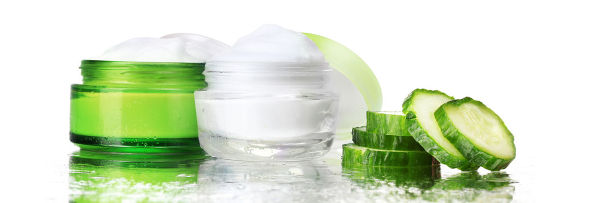
3). Protecting
The word ‘protecting’ in skincare refers to sun protection. It may also refer to antioxidant protection. But usually, it’s referring to sunscreen. You need a stand-alone sunscreen or a moisturizer containing sunscreen actives as the last step in your daytime skincare. In other words, you need some type of sun protection on your face in broad daylight.
Many people assume they only need sunscreen if they’re outside playing sports, at the beach, or spending many hours in the garden or strong sun. Unless you plan to be indoors all day long, you need sunscreen even for basic activities outside, such as walking to your car or work, or running errands. This is even more important if you have problem skin.
When you’re experiencing any kind of discomfort or your skin is breaking out, the last thing you need is your skin getting beat up by UV radiation and pollution. The sun will only assault it more (by sending free radicals everywhere, drying it out, heating it up, and channeling enough energy to cause a sun burn).
While you’re trying to heal your skin, do it a favor. Make its job easier. Protect it.
When To Seek Professional Help
Some skin problems require professional help because they cannot be successfully treated with retail products. They require stronger treatments – professional-strength products that you can use at home, and professional strength in-office or spa treatments, such as chemical peels or light treatments (IPL, laser). And some problems require prescription medications (e.g. antibiotics, steroids, retinoids).
 Additionally, more important than the products themselves is the routine – the selection of products, the order, frequency of use, and application techniques. This is where a professional will provide the most help (an esthetician is better than the physician in this case, because she or he has more product knowledge).
Additionally, more important than the products themselves is the routine – the selection of products, the order, frequency of use, and application techniques. This is where a professional will provide the most help (an esthetician is better than the physician in this case, because she or he has more product knowledge).
You may come across a single great product, which in theory works great in isolation, but you may not see improvement in your skin if there is a problem with something else in your routine. Combining products is where things get complicated. On non-reactive, non-acneic skin, this usually doesn’t have bad consequences, so you don’t have to worry about it too much. But it matters with problem skin.
If you have been struggling with the same issue for more than a year, and nothing you do is helping, it’s worth investing in professional help from a dermatologist or experienced esthetician.
Recommended Reading:
- The Skin’s Barrier Function
- How to Choose the Right Moisturizer For Your Skin Type
- All About Face Oils
- The Benefits of Using A Cleansing Oil & Double Cleansing
- The Sun Protection Guide
- Minimize Irritation From Products With This Simple Tip
Want new articles delivered straight to your inbox? Sign up here.

